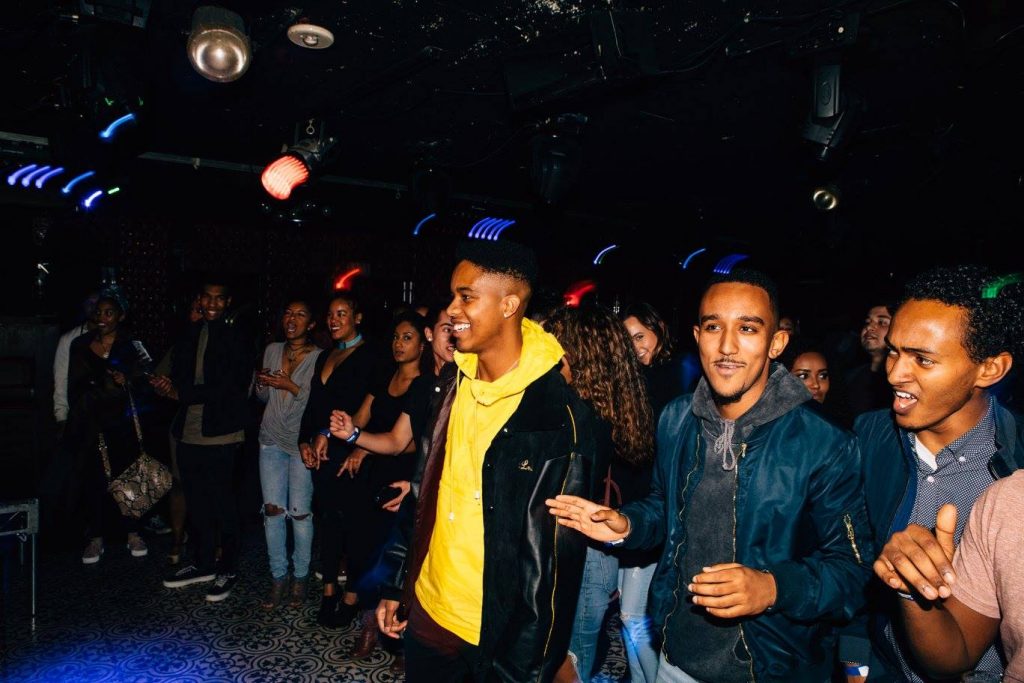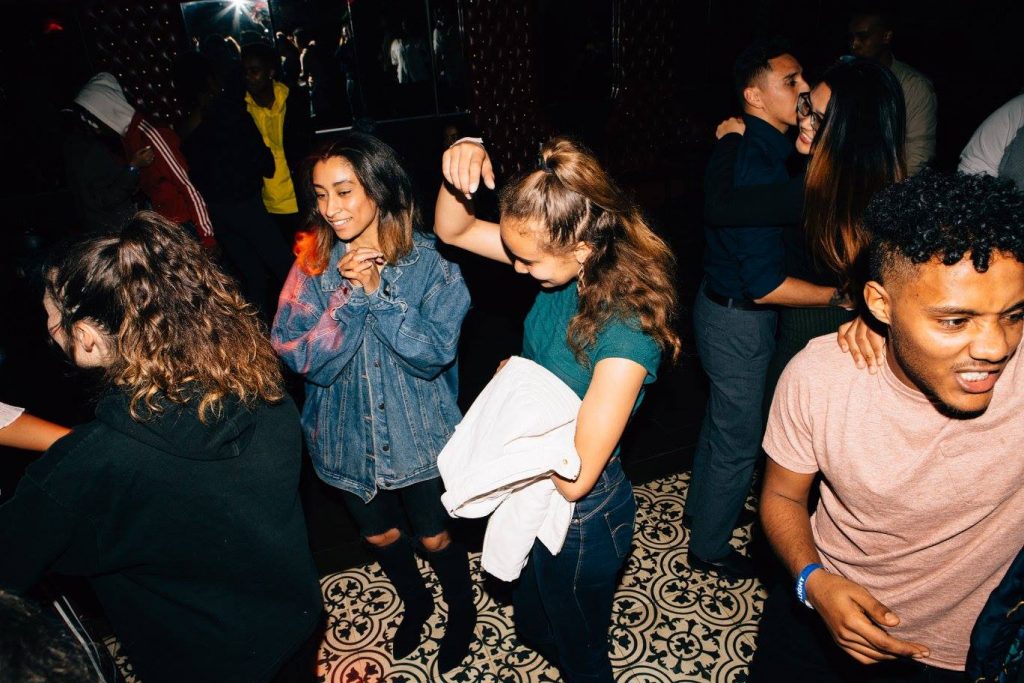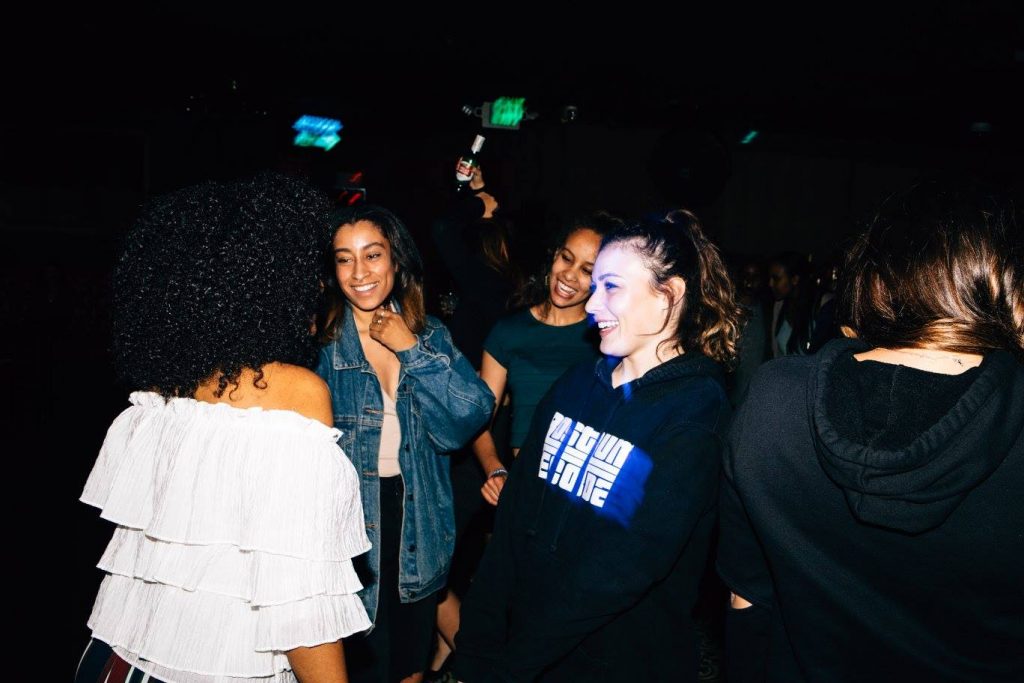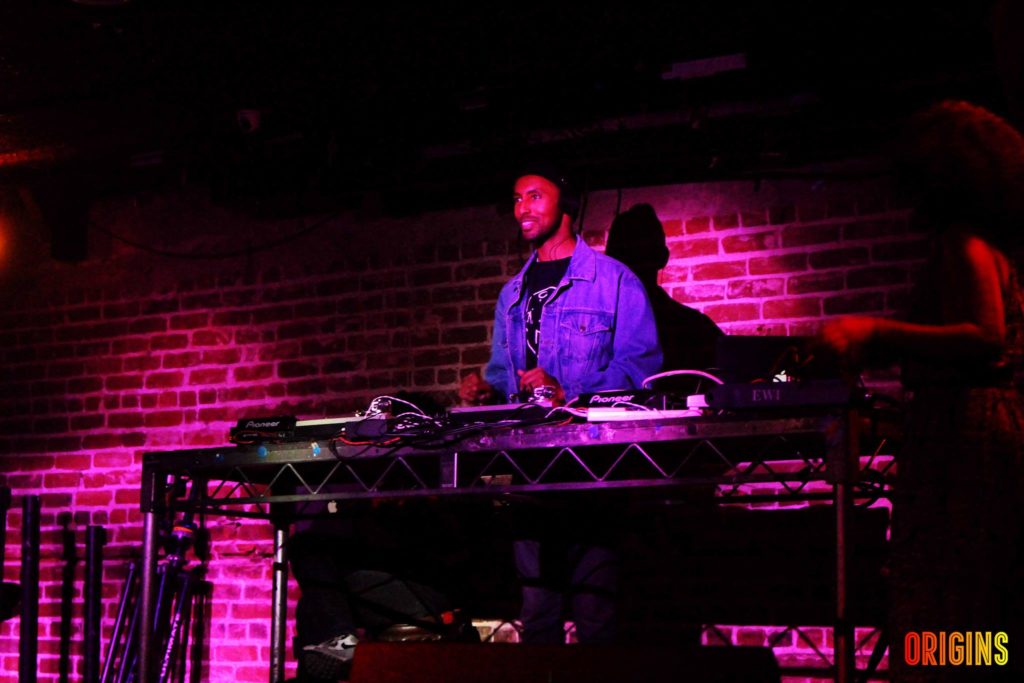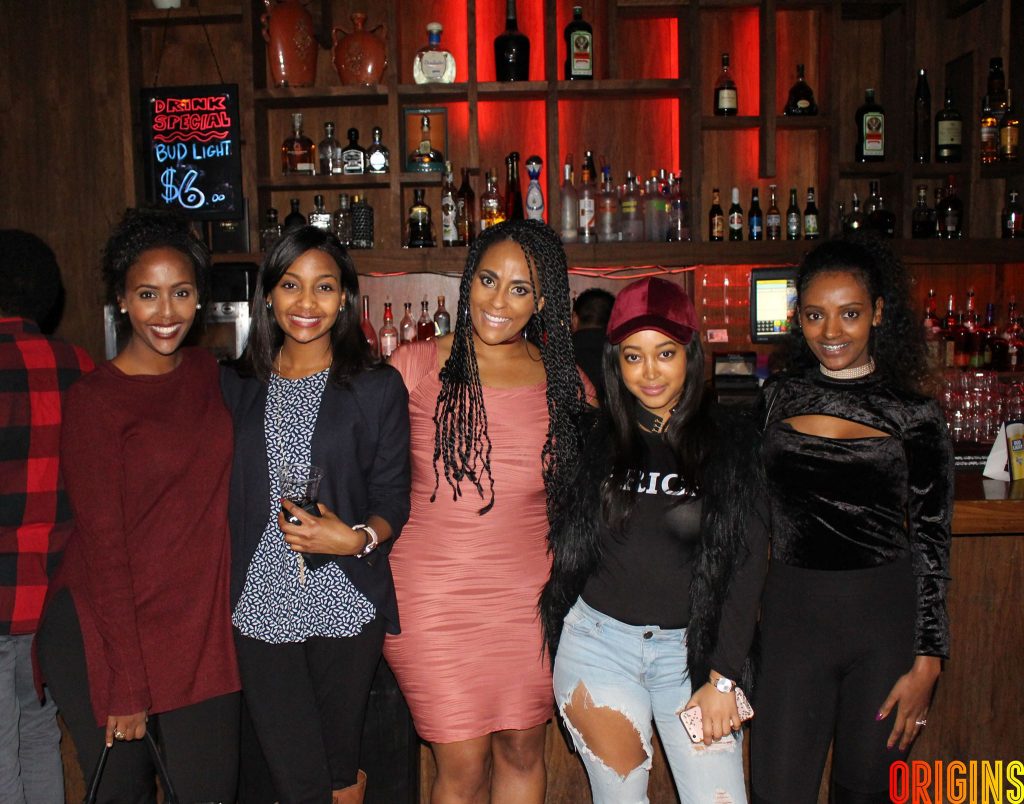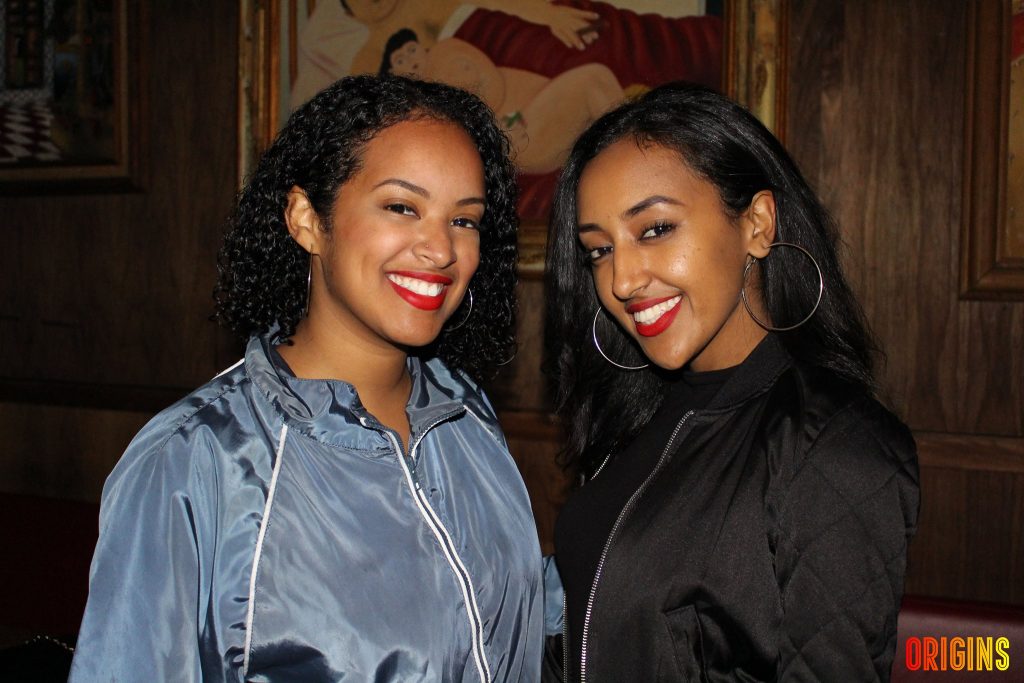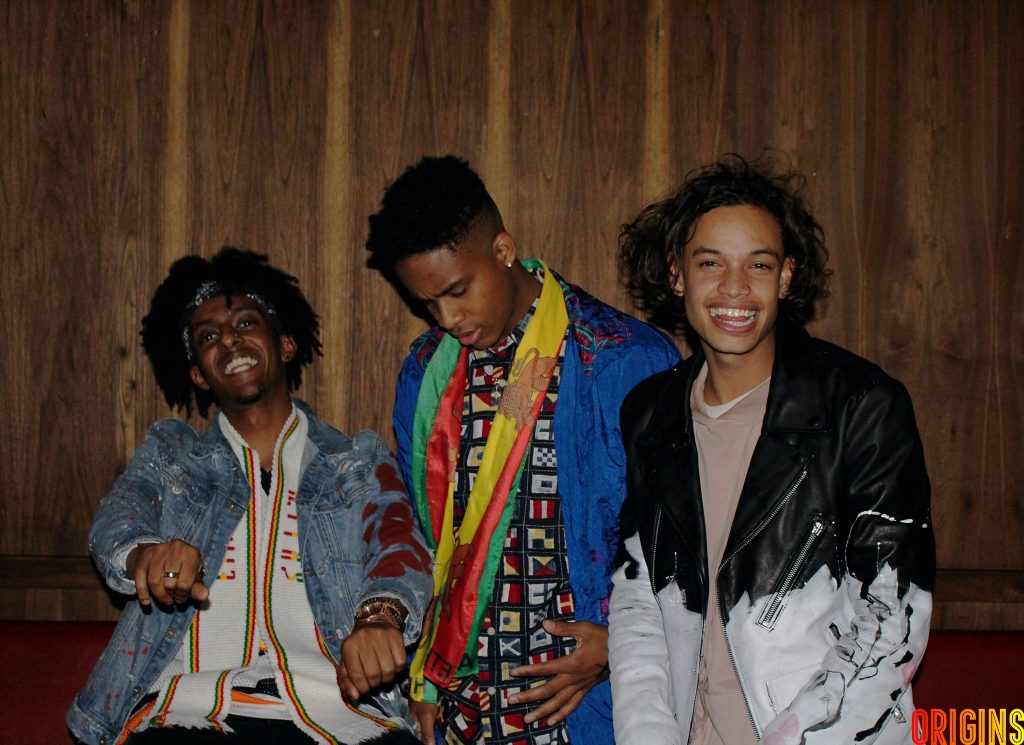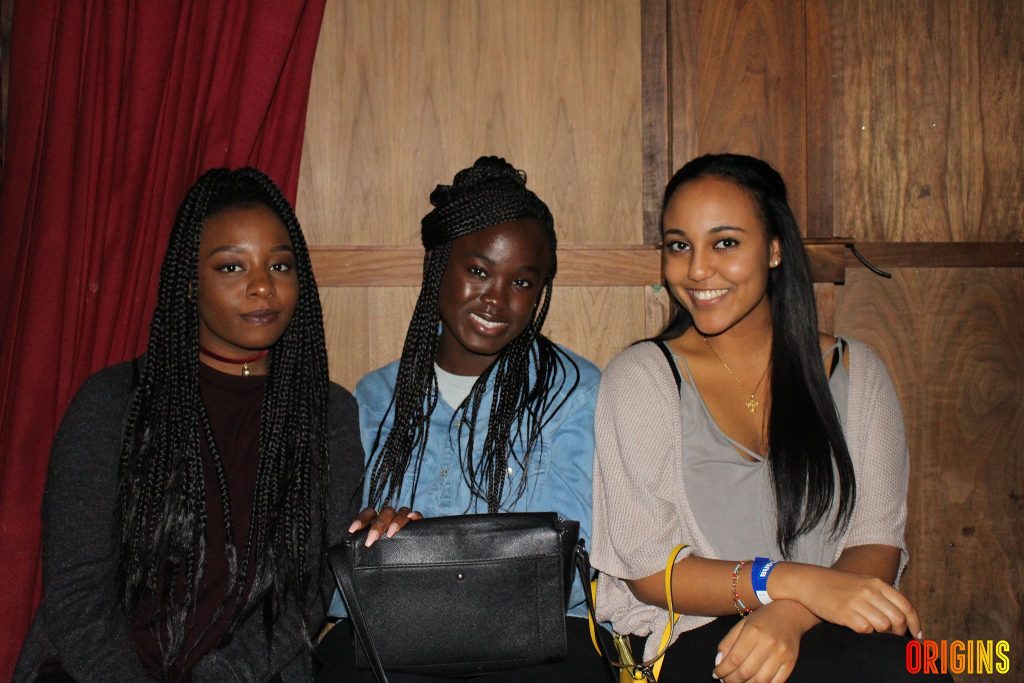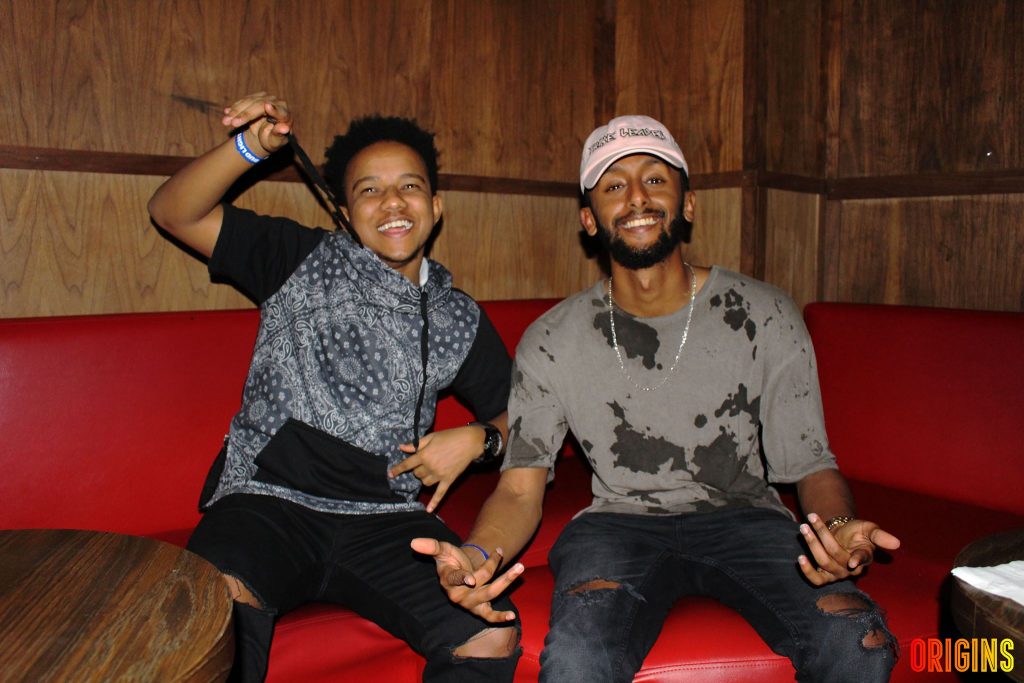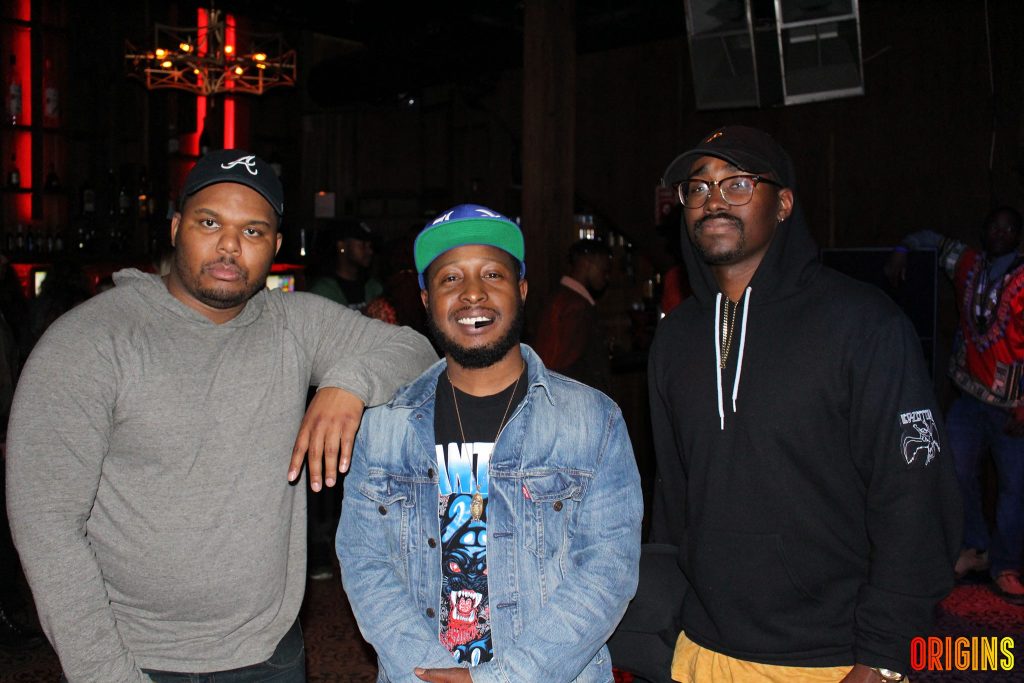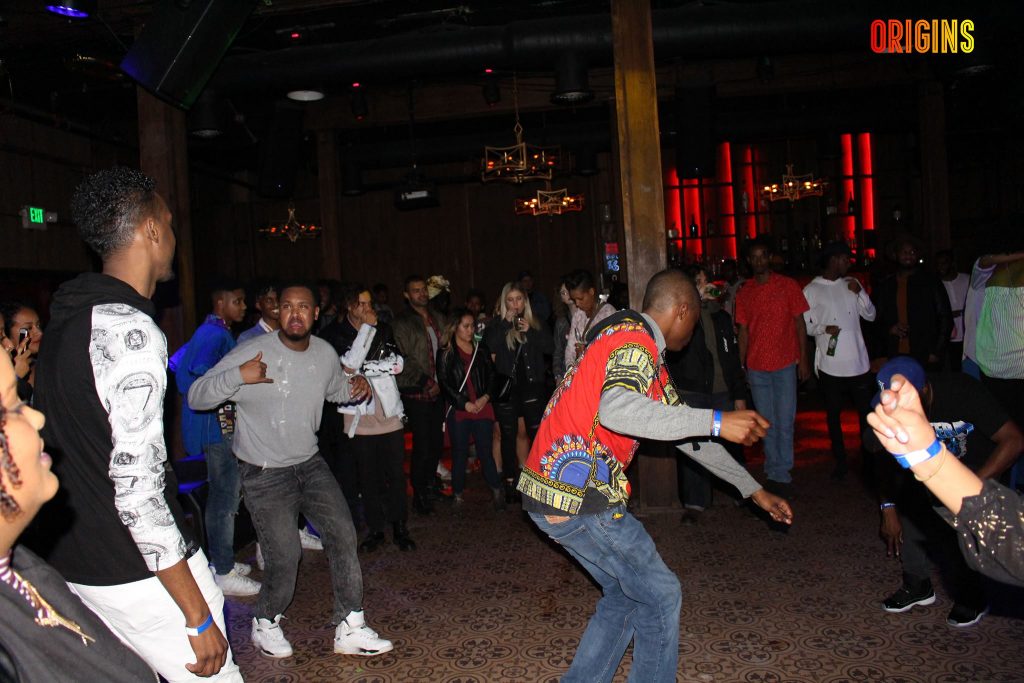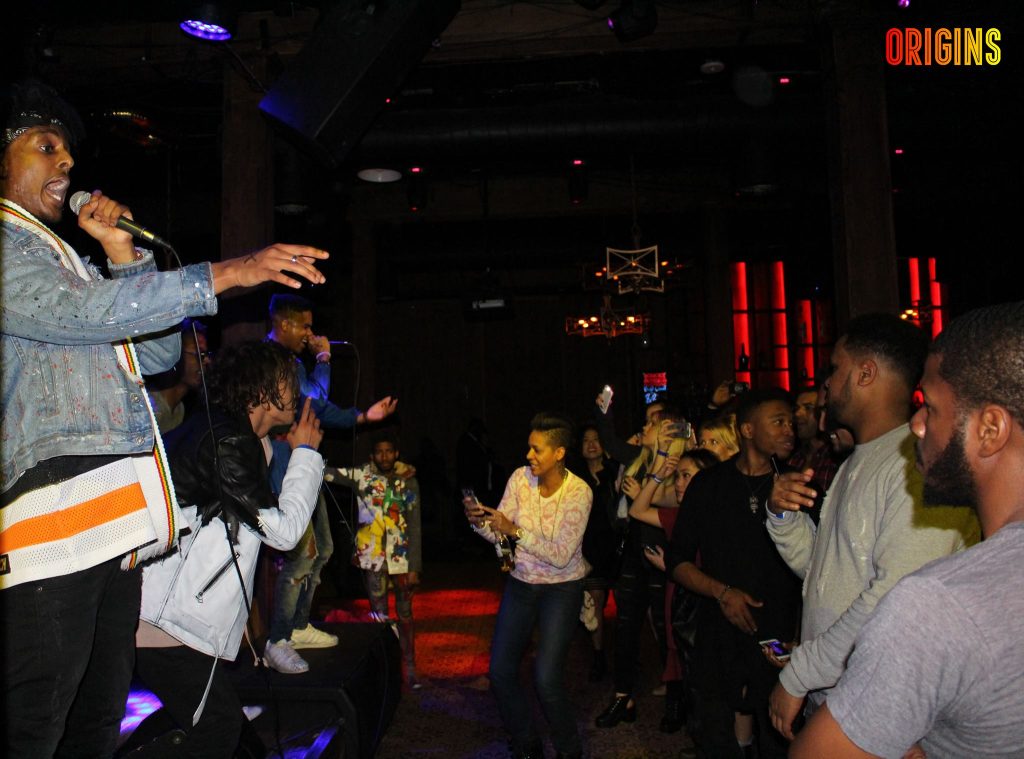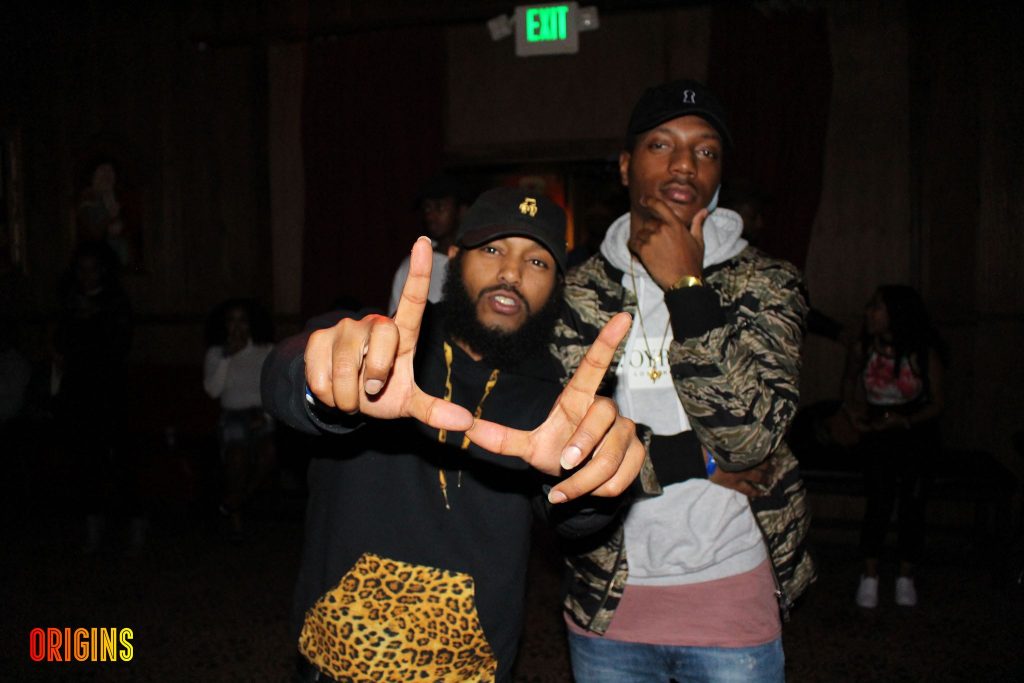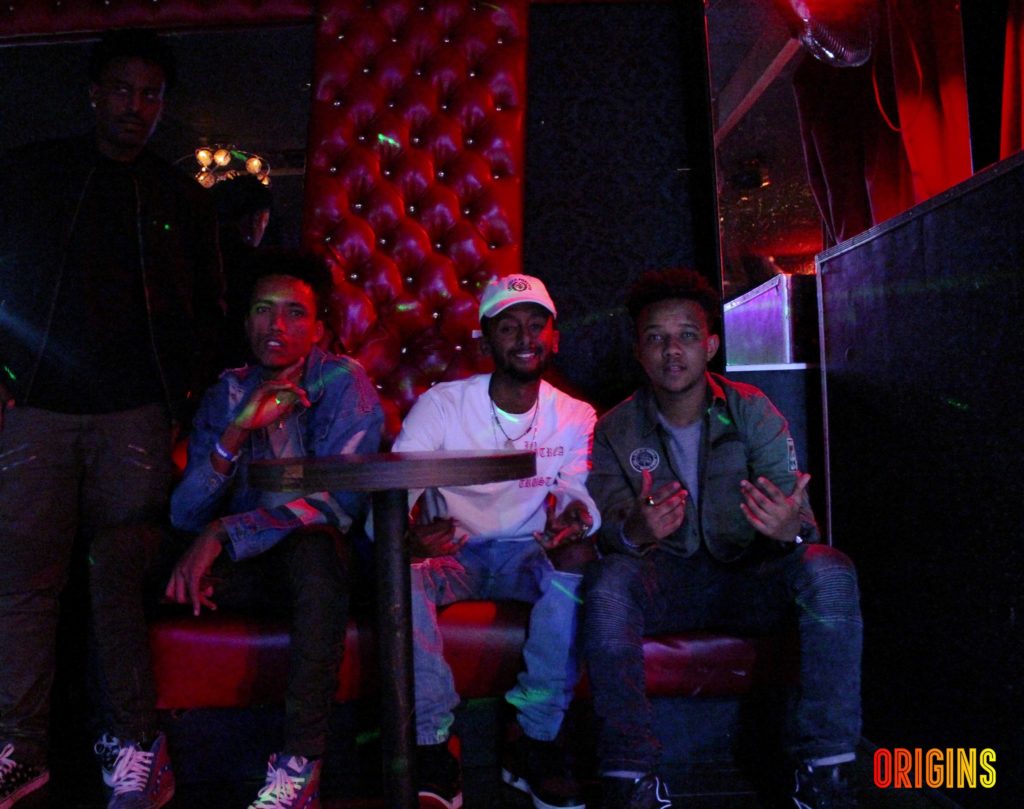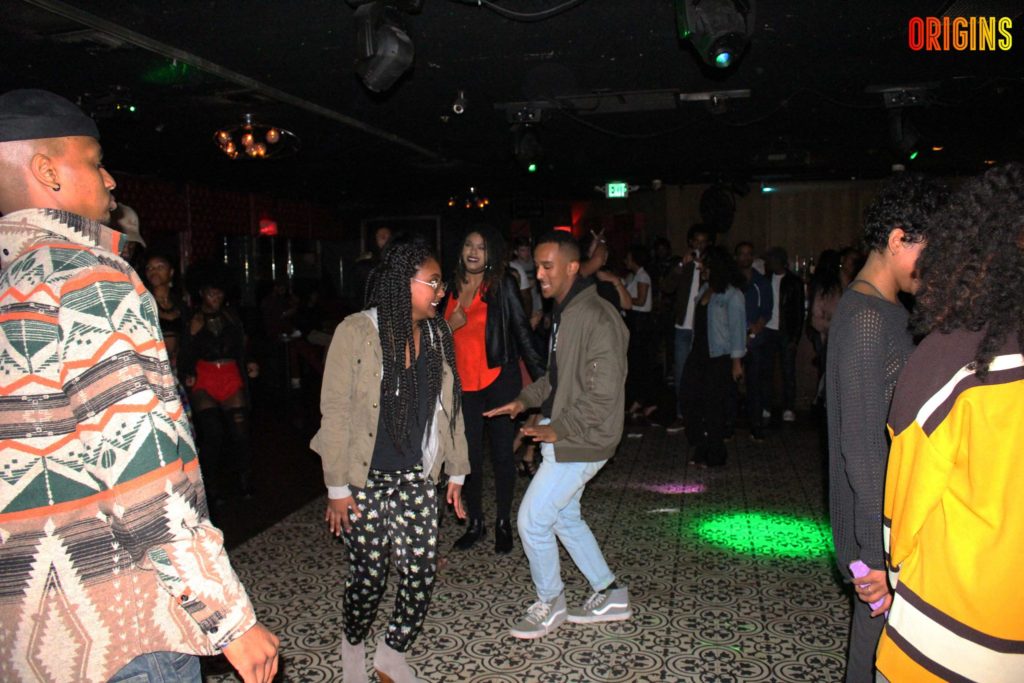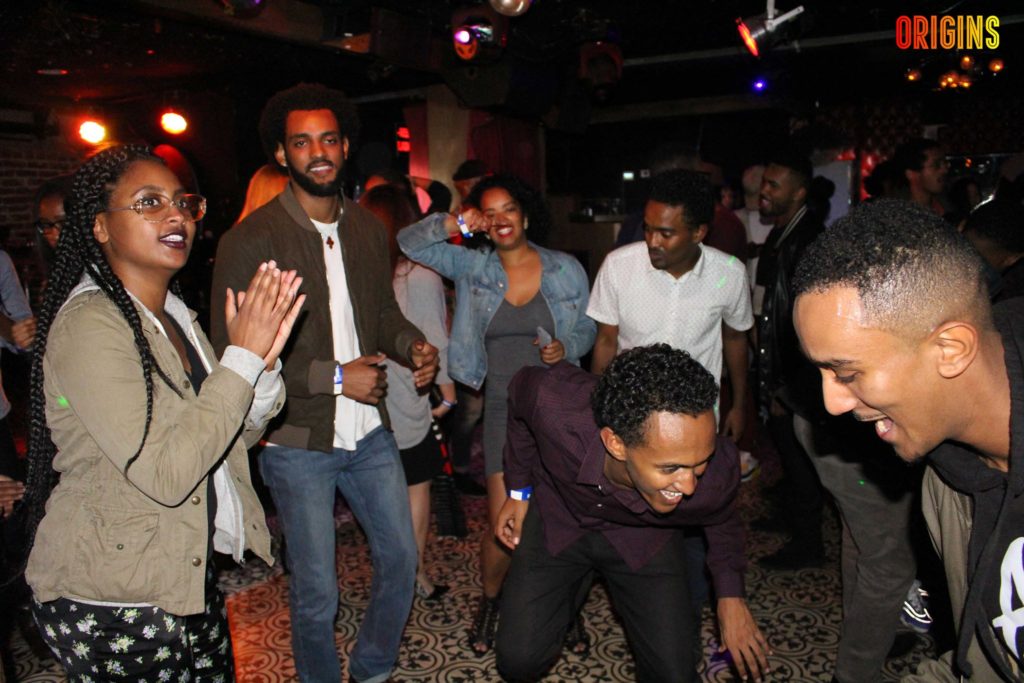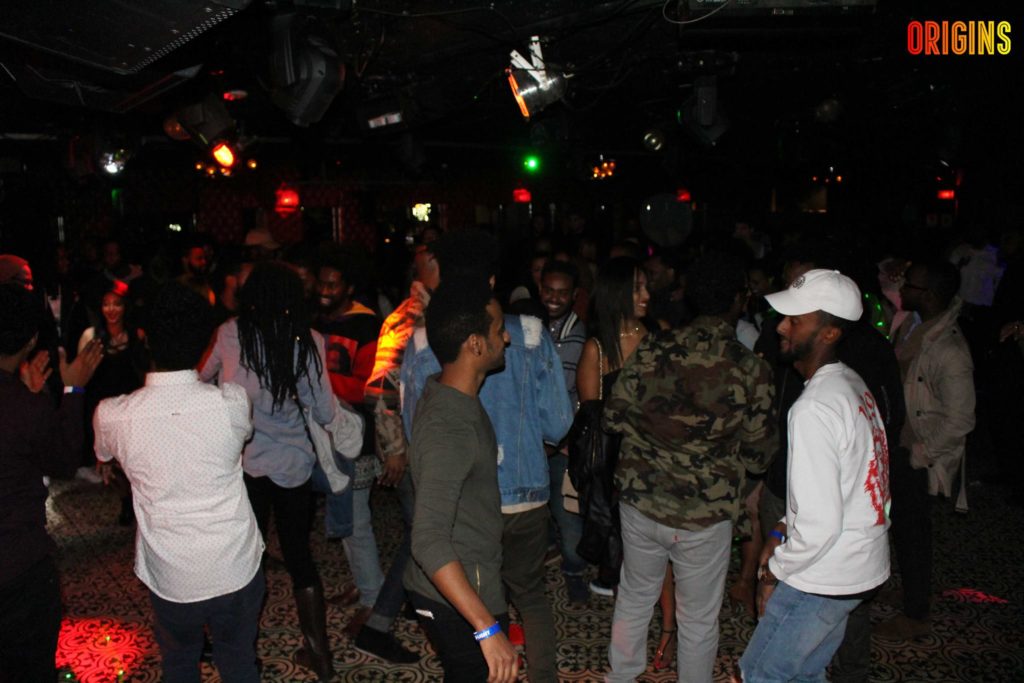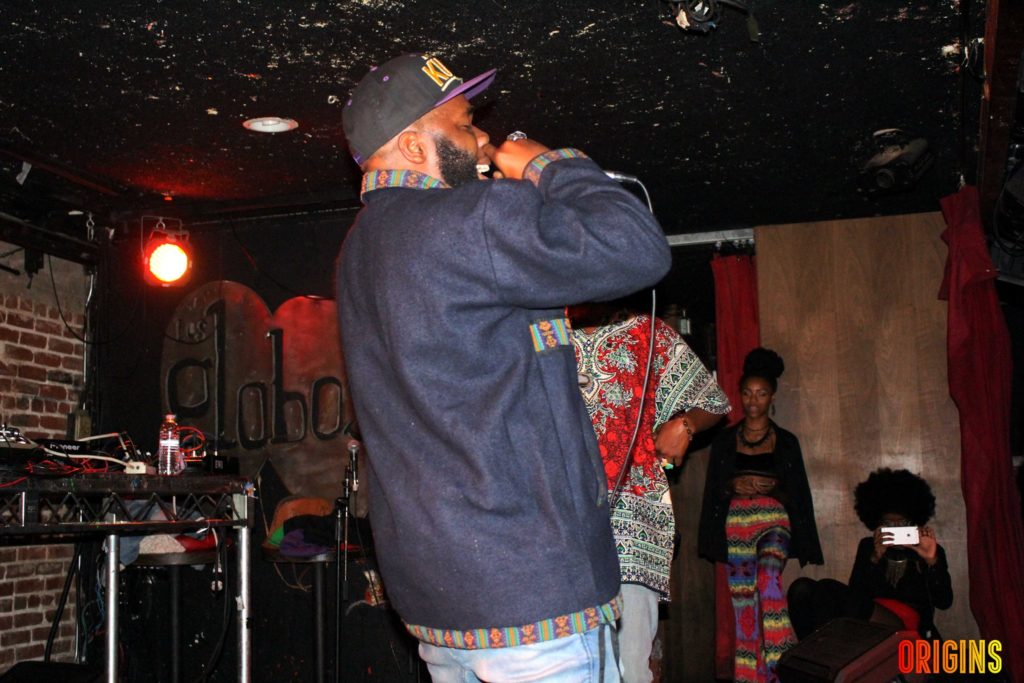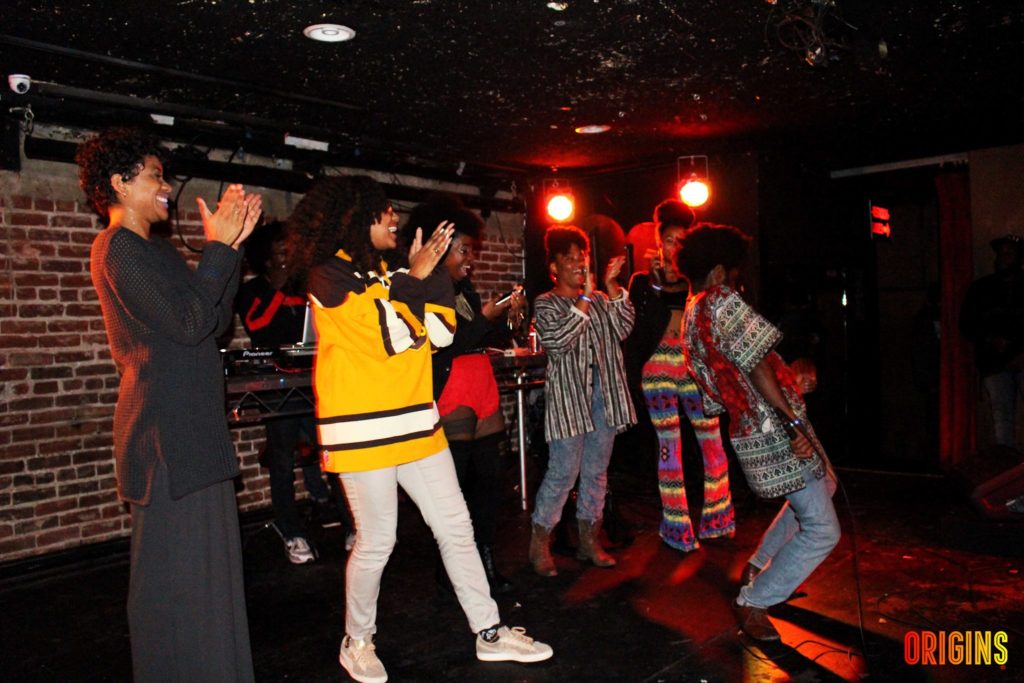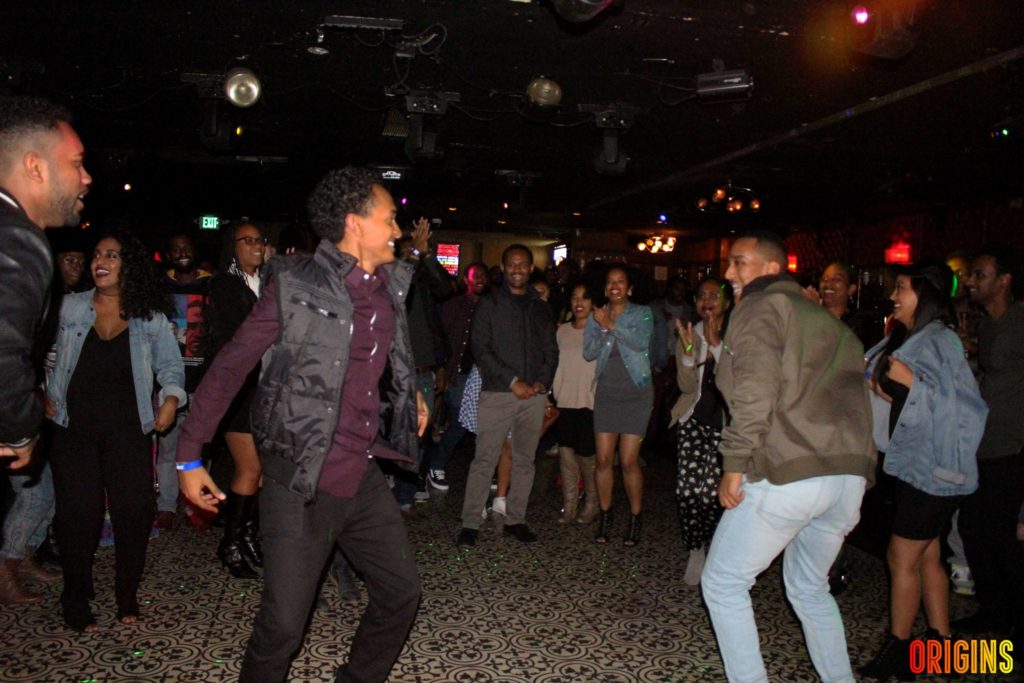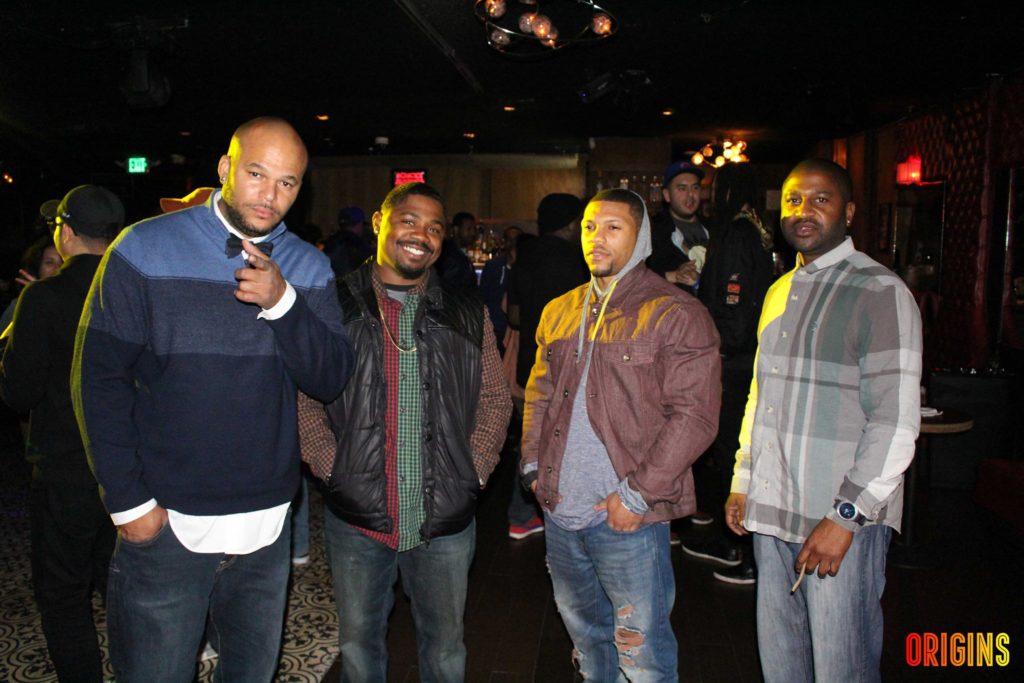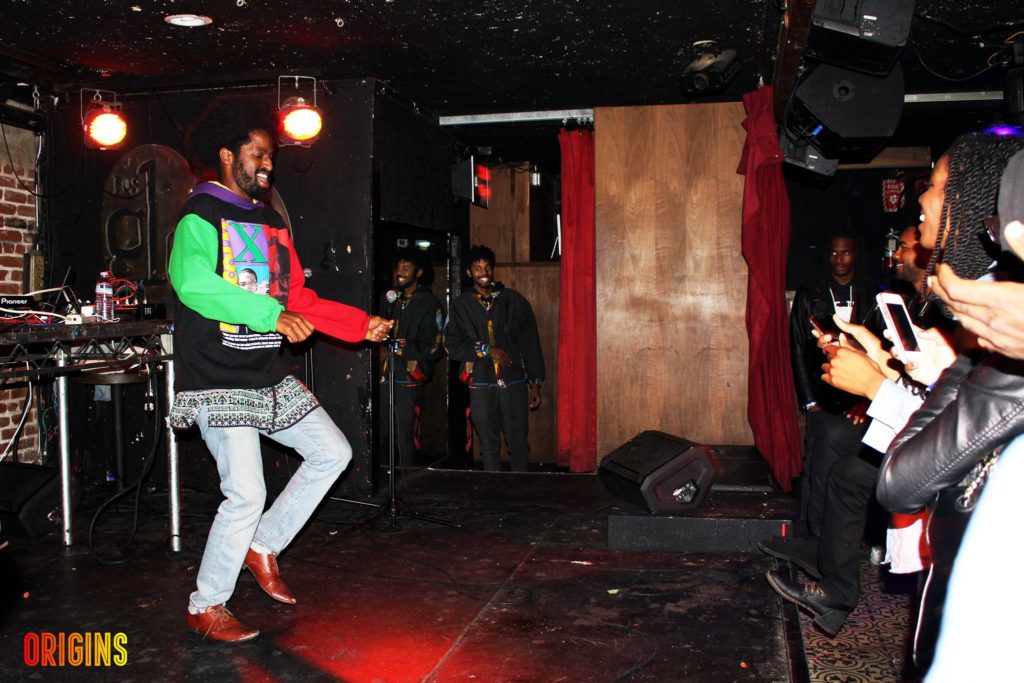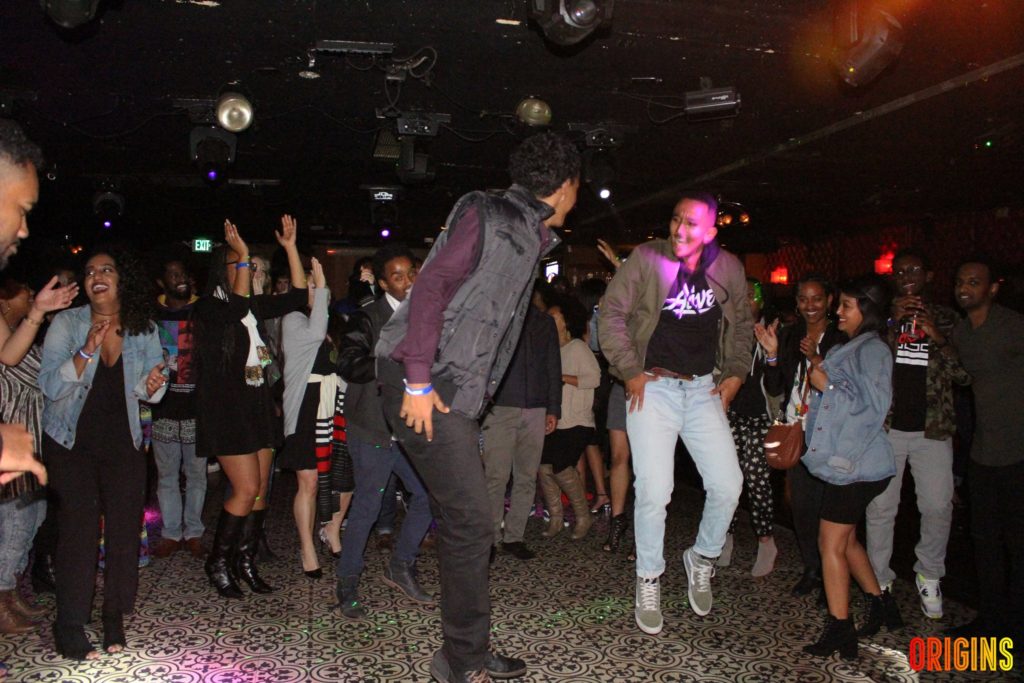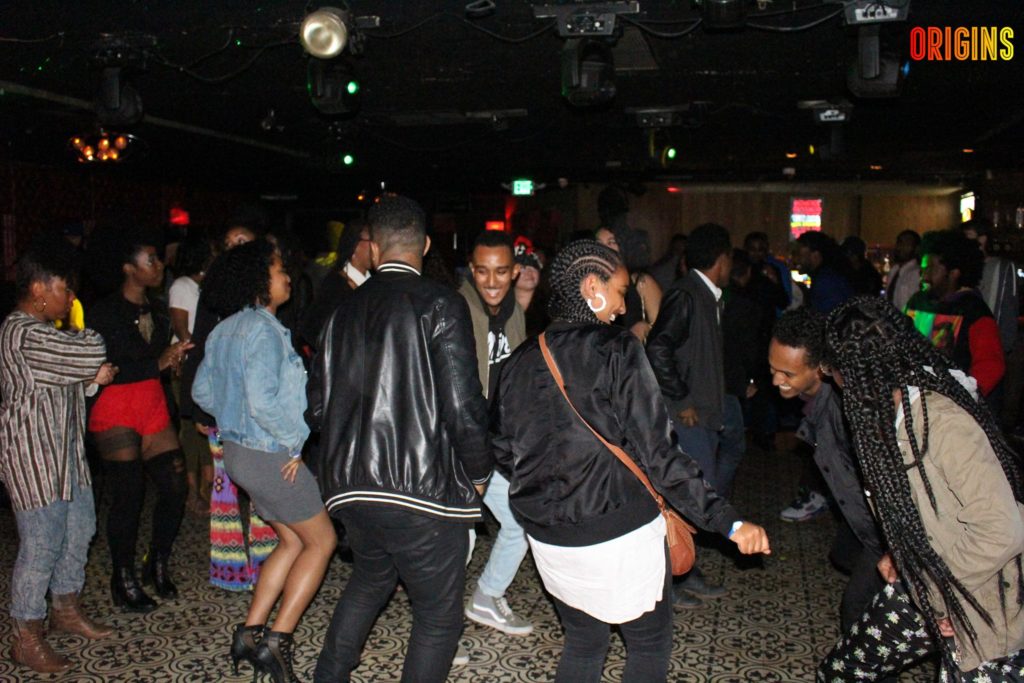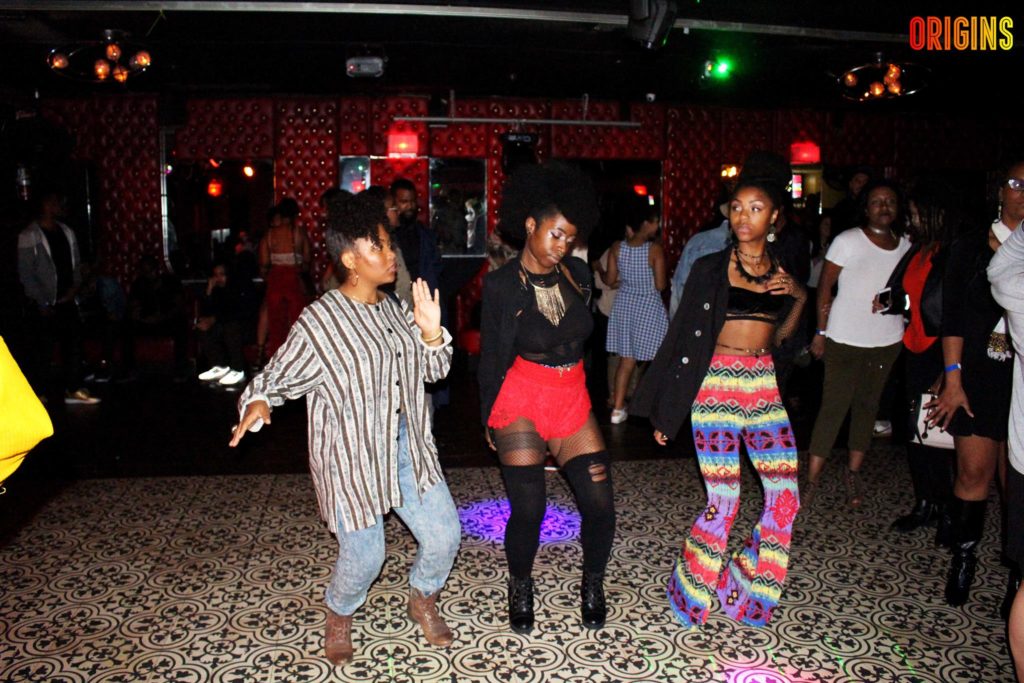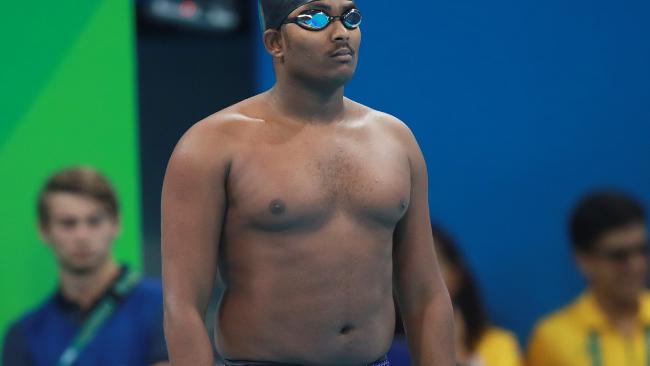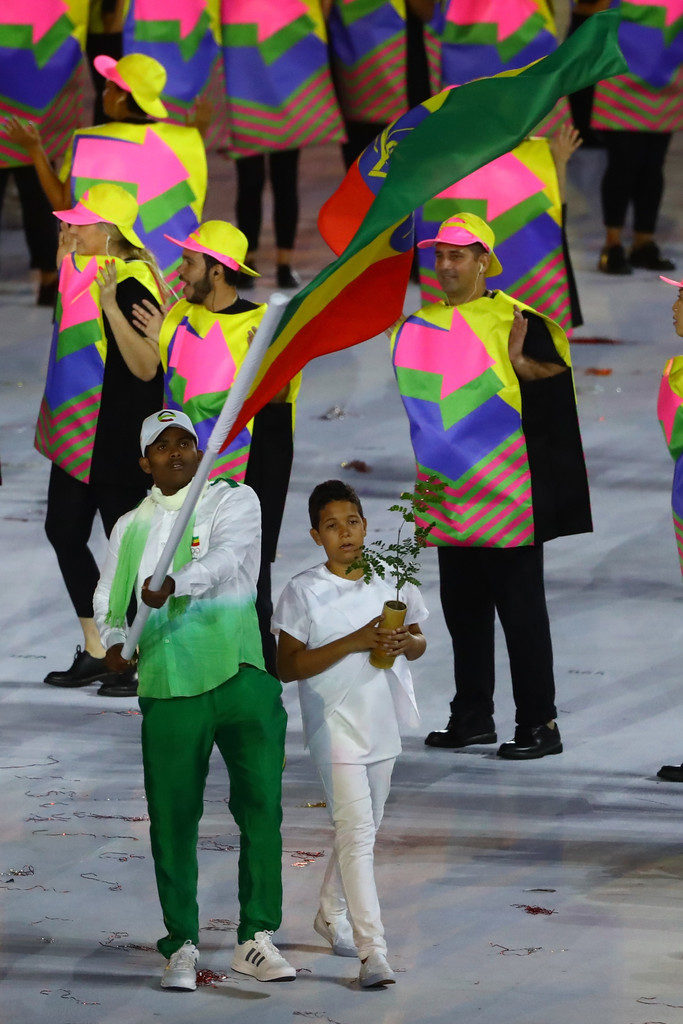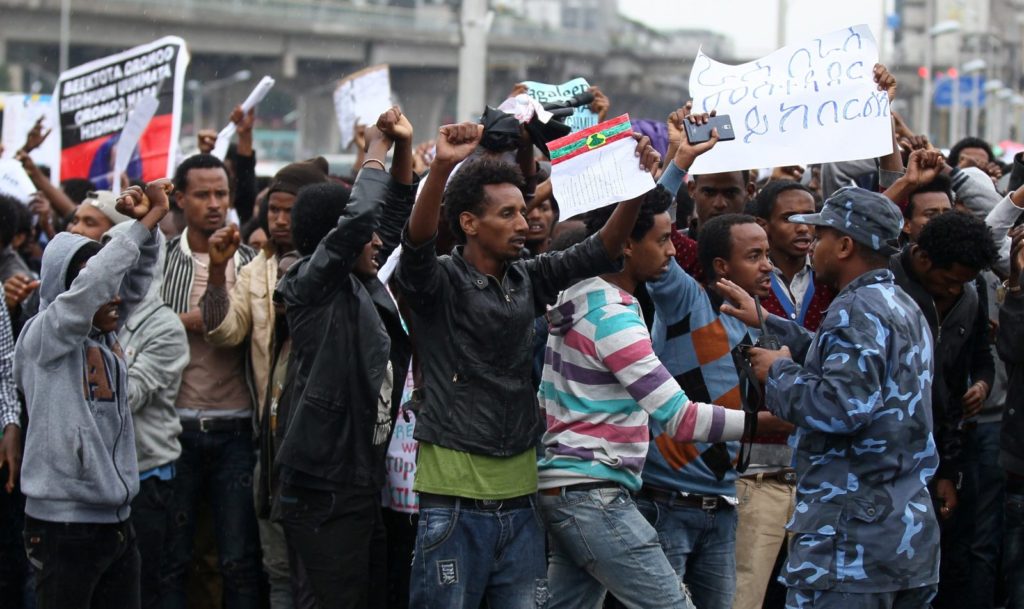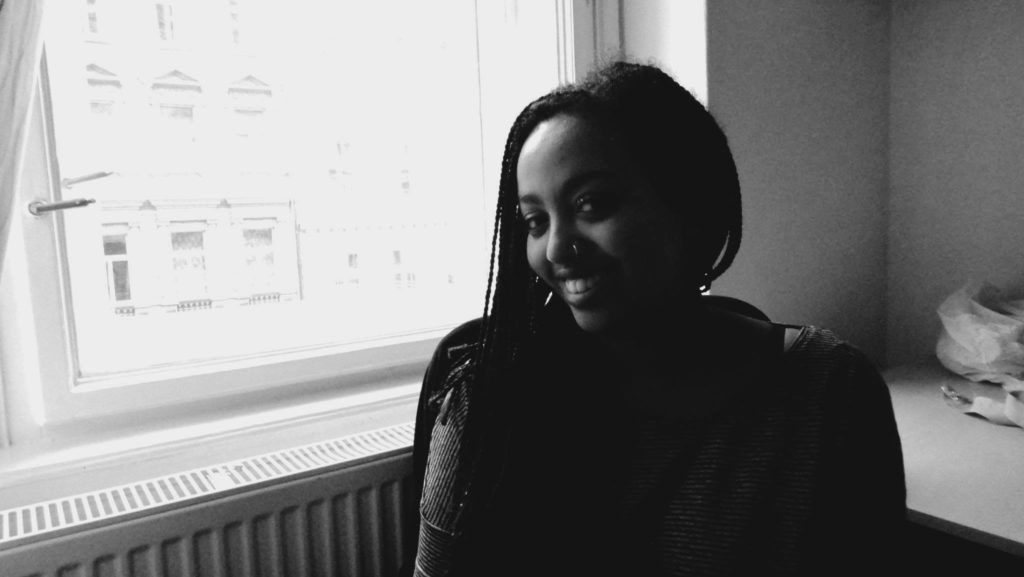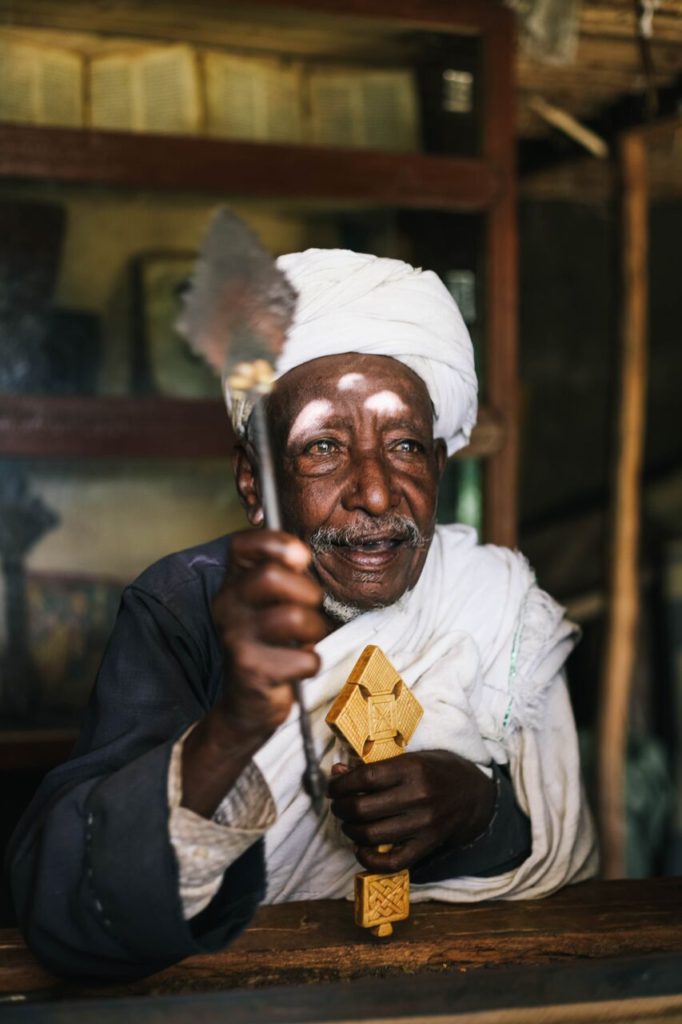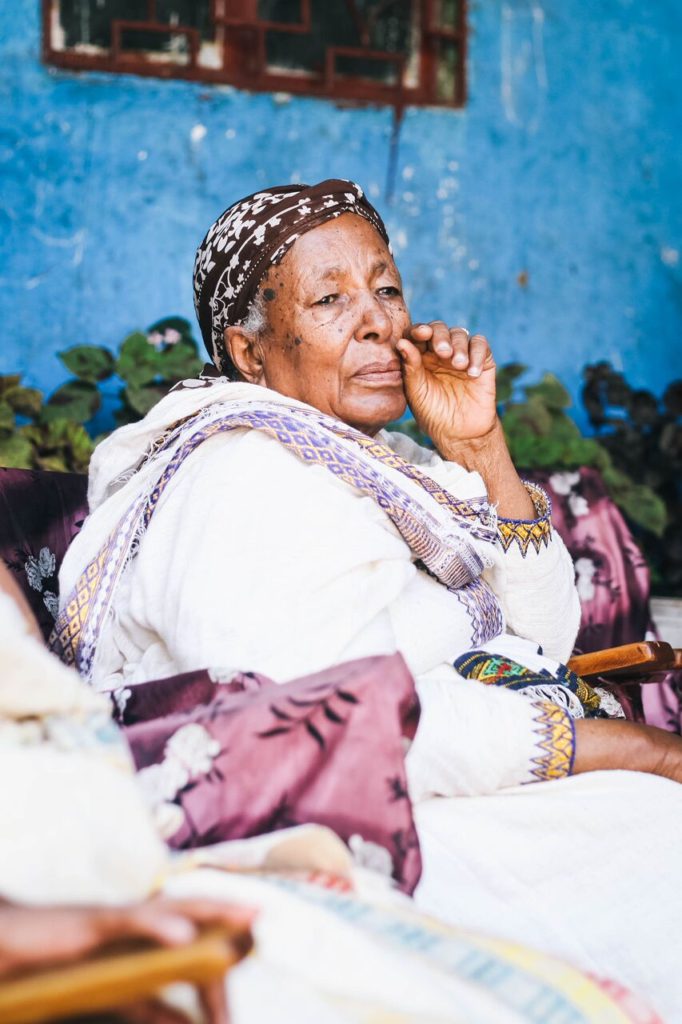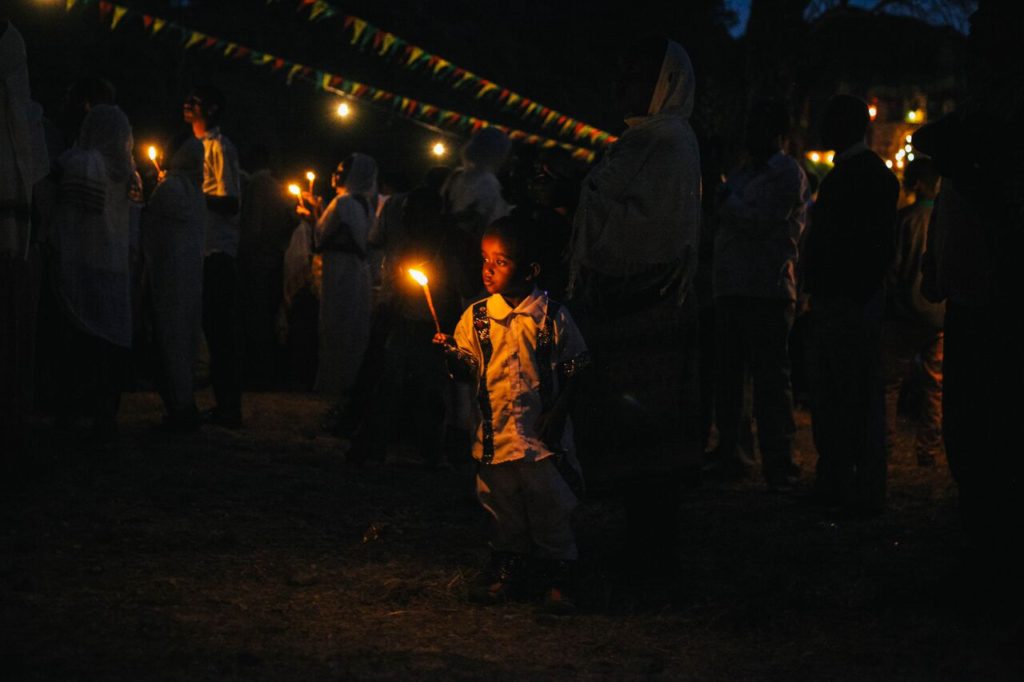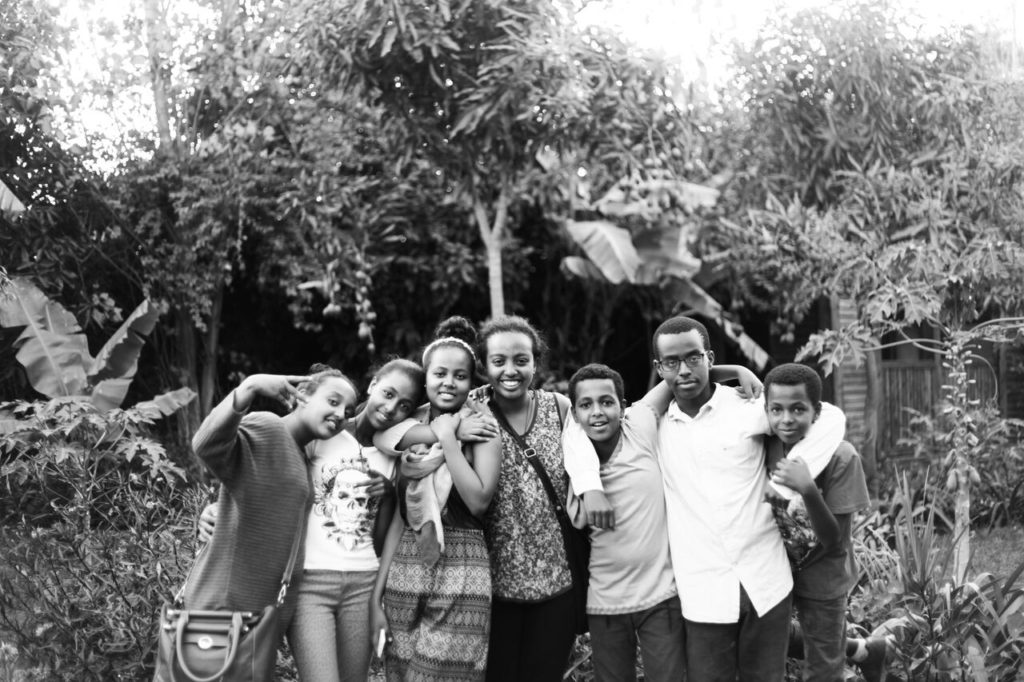HabeshaLA presents the third installment of Origins, a monthly celebration of the Motherland. The event took place at Los Globos in Los Angeles on Thursday, February 23rd featuring a performance by Desta Dawn Ch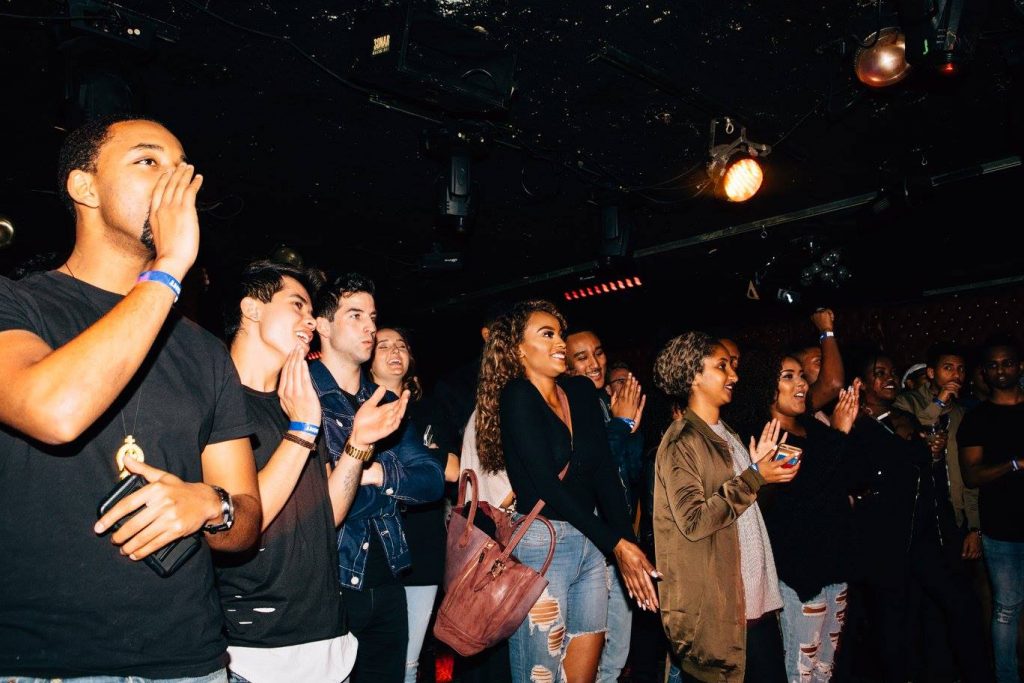
Author: Aida Solomon
HabeshaLA presents: Origins 1.12.2017
Tsehai Publishers presents: the 1st Annual Ethiopian and Eritrean Student Conference
By: Aida Bee Solomon
The first annual Ethiopian and Eritrean Student Conference, presented by Tsehai Publishers, took place last month on November 12th at Loyola Marymount University. The Ethiopian Eritrean Student Association of Loyola Marymount University, founded fall 2016 by Welela Makonnen, launched their inaugural event in hopes to creating a network among Ethiopian and Eritrean businesses, student organizations, and community leaders.
Elias Wondimu, founder of Tsehai Publishers, was the keynote speaker alongside a panel boasting a multitude of talent and professionals among the Ethiopian and Eritrean community. The panel included Director and Dramaturge extraordinaire Weyni Mengesha, Producer Leelai Demoz from Difret and Wondu Dikran from Journey to Lasta, Founder of Ethiopian Diaspora Fellowship, Rediate Tekeste, award winning Associate Creative Director of Innocean Worldwide, David Mesfin and Creative Director of Bota, Solomon Abdella, Managing Principal of DELFE & Company, Feben Johannes and President and CTO of NetServe Systems, Inc. Abdi Ahmed.
College students from all over California attended the event and discussed issues including the current political climate in Ethiopia, constructive dialogue concerning ethnic groups among Ethiopians and Eritreans, and how to obtain internships and other career opportunities.
Tsehai Publishers is an internationally renown institution that was founded by Elias Wondimu in 1998 after he became an exiled journalist forced to leave Ethiopia. Wondimu sought out factual and historical literary works about Ethiopia, seeking out minority academic scholars and authors that are often overlooked in the publishing world. Tsehai has published over 100 books, journals, and imprints, while establishing itself as a hub for Ethiopian history and storytelling in Los Angeles and beyond.
HabeshaLA has obtained exclusive footage from the conference. If you would like to learn more about how you can get involved with next year’s Ethiopian and Eritrean Student Conference, send an email to lmueeasa@gmail.com.
HabeshaLA presents: Origins 12.8.2016
HabeshaLA presents: Origins
HabeshaLA is excited to present Origins, a new monthly event kicking-off this Thursday December 8th at Los Globos. Featuring East African DJs and talent, Origins aims to put Ethiopian & Eritrean music on the map in the hip hop party circuit. The first installment of Origins will feature a performance by LA-based producer and artist Space Monk, and live sets by Senay and Mekonnen Garedew. Doors open at 9pm, with free entry before 10pm with RSVP. Don’t miss it! RSVP now at OriginsLA.SplashThat.com!
Watch the Origins promo video below — Directed by Aleah Clark.
HabeshaLA Presents: BunaTime
Name: BunaTime
Age: 19
Hometown: Asmara, Eritrea
Describe your hustle/brand.
BunaTime was initially made as a comedy page on Instagram in 2013, by the name of “HabeshaComedies”. My vision for the account was to create memes using westernized content, and integrating that to the Habesha culture. Seeing as it became more popular over the years among the Diaspora, I teamed up with rapper Professor AMX, Abbel Dawit, and designer Xavier “Rufio” Pipkin to take it to the next level. We rebranded the account to a combination of comedy, music, merchandise and gaming while changing the name to “BunaTime”.
How did you come up with the name BunaTime?
It really seemed like every Habesha page out there had the name “Habesha”, so I decided to come out with something unique. As we all know, coffee ceremonies are a huge deal in our culture. Its where everyone comes together to laugh, share ideas and most importantly gossip. Thus, Buna (coffee) Time became an inspiration of that, and worked on replicating the socialization on a social media basis.
What inspired you to create BunaTime?
It all started on my freshman year of high school, when I had lots of free time. Instagram was on the rise and a page called “InstaHabesha” was popular back then for making funny memes. I don’t think BunaTime would exist if it wasn’t for them, because their work was my biggest inspiration.
Did you expect BunaTime to blow-up on a global scale? And how do you envision BunaTime impacting Habesha diaspora?
I created this platform as a joke and had no intention on getting to the point where I am right now. It’s very surprising, but at the same time a huge factor on why I keep my identity a secret for now. I envision BunaTime to help the Habesha diaspora connect with their culture and cousins, regardless of them being Eritrean or Ethiopian. A lot of people have messaged me to appreciate the fact that I helped them understand their culture better, so I think the vision is already on course.
For those of us that don’t know, what is a Hanny Banny Chekolet?
When BunaTime’s Snapchat started to blow up, two brothers from Kansas by the name of “Moni” and “Alayu” hosted the account, and constantly started saying “Hanny Banny Chekolet”. It became an instant hit on twitter when I started tweeting about it, and eventually turned into a hat design. As for the meaning, the word is used to call a certain lover kind of like “konjo” or “Shikorina”.
Tell us about your app, “Don’t Drop the Jebena”.
Me and Abbel wanted to create a game for the culture and thought of many different ideas. Dropping a Jebena could potently get you killed by your mother, but what if you could drop it as many times as you want without the fear? We played with that thought and made it a reality later on by releasing the game under the name of “Don’t drop the Jebena”. So far the game has generated more than 2000+ downloads in less than a month.
What can we expect from you in the near future?
As for the future, I want to focus more on clothing that represents our culture and what the Diaspora could wear proudly to represent and show off their country. Eventually, I do plan on revealing my identity to do YouTube Vlogs, skits, etc.
What advice would you give to other young Habeshas who are interested in entrepreneurship?
This might sound corny, but the most important thing is to never give up and follow your dreams. I kept on being consistent with my work and even gained the attention of several stars like The Weeknd, Gedion Zelalem, Teddy Afro, Nathan Zelalem, Aminé and many others. Also, never be afraid to collaborate with other like minded people, and if necessary, I’m also down to support Habesha business so hit me up.
Where can we reach you? (website, social media handles. etc).
Instagram- @HabeshaComedies
Snapchat – @HabeshaComedies
YouTube- BunaTime
Twitter- @BunaTime
www.Bunatime.co
This is not what we meant by changing the narrative
Written by: Dibeq Diaspora
Let’s just start by saying, Almaz Ayana. Yas, girl. Yas.
Now, if you have been on the internet the last week, you are well aware of one of our most famous Olympians, Robel Kiros Habte. Robel, rose to fame when his body was photographed before the 100 meters freestyle race. The internet reeled at a man of his size (fairly normal for a non-Olympian) to show-up and compete against the world’s greatest athletes. He went on to finish 59th out of 59.
Questions came: How did he qualify? How did he get chosen to carry the flag? Why did he have such an unfit body? WHO IS ROBEL? He was dubbed, “Robel the Whale.” Soon after, some answers came. He was chosen by an special invitation by FINA (the International Swimming Federation) to countries that didn’t have many competitors in the Games. But, the biggest piece of news (that multiple international news agencies did not report – we’ll talk about that later) was that he is also the son of Kiros Habte Knife, the President of the Ethiopian Swimming Federation. Robel even made a statement, saying “I am so happy because it is my first competition in the Olympics. So thanks for God.”
So the headlines came, from L.A Times and Business Insider and even the Washington Post. All writing about this large athlete, but missing the bigger (no pun intended) story. Until OkayAfrica’s article – thank goodness for OkayAfrica. They dived deeper on the corruption and political issues Robel raises.
As an Ethiopian diaspora, I have a heart that swells with pride when I hear my country’s name. When I land in Addis I kiss the ground (figuratively) to connect, and you can see me wearing my nech-on-nech with a splash of tilet clothes on every occasion (appropriate & inappropriate). Robel both amused and angered me. I tried laughing at the memes, the pictures shared, the articles – but deep inside I was ashamed, angry and frustrated that this was a new story from Ethiopia. I even thought, “well, it’s better than the starving-child narrative, right??” But, it’s not.
The fact that most diaspora are still sharing the fat-shaming posts and not understanding what’s underneath, pisses me off. The fact that right now and in the last year, Ethiopians in Ethiopia are dying to fight for a freedom they were promised, pisses me off. Intelligent, influential diaspora within the community have no problem sharing multiple “Robel the Whale” posts, but are equally as silent as the international news agencies on the issues in their own country. Why the silence intelligent, influential diaspora? News of protests and deaths not viral enough?
So, I urge you to hear this story so you can get a better picture – we, as young Ethiopian diaspora have an obligation and opportunity to know the truth.
Let’s first remember the Olympics have a long history of being an international platform for politics. From the boycotts, gender and race revolutions, and even wars have been impacted by the Olympics. Intentional or unintentional the Olympics are like a UN meetings on steroids (get it. Sorry, Russia). This year, for the first time in history, there was a refugee team – calling attention to the millions of refugees coming from war-torn countries. People love refugees when they are Olympians. There was even an Ethiopian on that refugee team, but that’s another blog post.
Now, how does our friend (probably our distant cousin) Robel, fit into this picture?
2 reasons.
One, corruption, corruption, corruption.
Robel Habte is the son of Kiros Habte Knife. His father was responsible for choosing the person to represent Ethiopia, and he chose him. Instead of any other athlete, he chose Robel. It’s a tale as old as time – son living out father’s dreams. Okay, I hear you Slate magazine and every other article about him being the fastest swimmer with the best chance- but really? REALLY? If you believe that – great. Not sure how many articles Slate Magazine does on Ethiopia or if they understand the context, but hey journalism – smournalism. Then he “deserved” to be there. However, not only was he chosen to represent Ethiopia in the swimming competition, he also carried the flag in the opening ceremonies. Why does that matter?
Carrying the flag into the Olympics opening ceremony is an honor traditionally bestowed to one of the country’s greatest athletes. Abebe Bikila, Derartu Tulu, Degaga (“Mamo”) Wolde… If you don’t know these names, kindly hand-in your Ethiopian card at your local Merkato. Interestingly enough, he isn’t even listed as the official flag carrier, do with that what you may, but you can see the thousands of pictures of him with the flag – an honor he took, was handed, or rather stole. This year, the Dibaba sisters, Almaz Ayana, Mohammed Aman are just some of the more qualified to carry our flag than Robelye.
Now, to the second reason Robel’s borche’s fame is indicative of a much bigger problem. Have you heard from any of these news sources on the current political issues leading to the death of our people? The silence of the international news and their willingness to only write about Ethiopia as a famine-stricken country, emerging economy, or an Obama’s destination is a huge problem we as young diaspora need to call-out and do something about.
There have been and are current protests in Ethiopia. This is not an Oromo thing. This is not an Amhara thing. This. This is an Ethiopian thing. The protests have spread to ethnicities advocating and working together to fight an immensely corrupt and unfair system. You can say the system has been in power for 20+ years. You can say the system has a pattern of jailing any opposition, thus leaving the country in a very vulnerable vacuum power position if/WHEN the system fails. You can even say the system is responsible for Ethiopia having some of the highest number of jailed journalists in the world (hence, why this blog is anonymous – I don’t look good in jail).
Look, I get it. International news sources sell more by focusing on fat-shaming versus real issues happening in East Africa. They may touch on the issues, but scouring their headlines for 1 article on the deaths of 40+ Ethiopians in the last month, protests in the country, or the immense injustice of the system – you’ll find it tough to even find one. There are complicated reasons for international media editorial decisions, political reasons to keep the peace because of neighboring countries wars, or a booming emerging economy is a better story, or if it’s not about famine, it’s not a headline, and maybe lastly ( here’s to you America) we are brown people on the dark continent, so who cares?
Okay, maybe it’s not that deep and the editorial decisions are just simply the Kardashians keets are a better sale than the 20+ year dictator government ruling equally if not more brutally than their communist predecessors. Wait, is that it? Do we have to use the word communism for you to be scared enough to write about it? Do we have to say dictatorship? Do we have to say humanitarian crisis? What’s the buzzword, people?
Before this becomes a rant, we come from a culture full of mikir or gorsa, so I’ll leave you mine.
For the young diaspora:
Look beneath international headlines. Don’t only make your screen names about being Ethiopian. Being part of a country means defending the people, the rights, and the patriotism in peace and in war. You can’t be @iluvethiopiaohbaby on Twitter and not give a shit when your people are systematically being killed. Your profile picture with your red, green and yellow – get out of here – you are a potential mouthpiece – so read, learn, then speak. Your silence is deafening for your people. Don’t show up in Bole expecting to get from a country when you haven’t given anything.
For our Robel:
We are sorry you are in this position, but take accountability for your lack of discipline, your lack of respect for being an athlete and your lack of ethics. You know the strength and abilities of your fellow athletes. You could have said something. I urge you to reflect on this as an international life-lesson. Maybe an elite mindset has not prepared you to learn the skills of discipline, so let’s just say you “earned” your position – did you work as hard as you could to swim as best as you could in the Olympics? Did you train night and day? Were you a competitor? Were you there to win? Did you take this opportunity seriously? Only you and God know the answer to those questions.
For Ato Kiros & the swimming federation:
We are impressed with how courageous you are to make a decision like this in front of an international audience. It’s unfortunate you think we (the people) are still not connected enough to figure out the behind-the-scenes plot. Did you forget that the Internet exists? Ato Kiros, every father lives to see his son succeed, but you set your son up for ultimate disgrace and failure. Where were your fathering and coaching skills before he showed up to the Olympics? Where were they after he was chosen? In light of this blatant corruption, we kindly ask you to step down and respect the sports which you proudly work for. We know that won’t happen, but we can ask, right?
Lastly, to the system – the Ethiopian government.
We young Ethiopian diaspora stand with our local Ethiopians in their plight for a better life. We are thousands of miles away, but we – every ethnicity – stand with them. We will continue to search for truth beyond international media, we will continue to read, write, and activate for a better Ethiopia.
****
HabeshaLA presents: NYC photographer Martha Tesema
Hometown: Portland, OR (currently based in Brooklyn, NY)
- Describe your hustle/brand.
This is something that’s always constantly evolving for me as I grow and learn new skills every day. Currently, I’d describe myself as multimedia journalist—which I understand can mean so many different things. To me, that just means I fluctuate between telling stories visually with my photography or through writing. I’m so passionate about both and would never be able to pick just one! I also am somewhat of a videographer, and illustrator, and have had experience as social media strategist. Essentially, I’m all over the map and have strengths in different buckets which I think is incredibly important in any media position these days. These have all developed from a variety of jobs I’ve been blessed with over my short career so far—from promotional assistant to editorial contributor to communications specialist positions.
- Who are some of your influences?
Like my interests, my influences are all over the map. In terms of photography, I’m very much drawn to work by photographers like Chi Modu. Lately I have been seeking out work by black photographers and that’s led me to really amazing work by people like Awol Erizku and Meron Menghistab. I don’t necessarily shoot in that same style, but it’s definitely a source of inspiration as of late. I’ve been pouring over the “Vision & Justice” issue of Aperture and there are incredible folks featured there whose work gives me the chills. There’s so influences when it comes to just this realm—too many to list that it would be ridiculous to try! In terms of writing, I’m always constantly amazed by the work of women in the industry particularly when it comes to culture critic. Hannah Giorgis, Rawiya Kameir, Doreen St. Félix, Jessica Hopper, etc….I stop always when I see their names and devour everything they say.
- What can we expect from you in the near future?
I’m working on putting together a book of photographs from my trip to Ethiopia, and possibly going out there again to shoot more in the city where my parents are from and start a project there regarding their childhood. Until then, I just moved to New York and am writing as much as I can and looking for dope creatives to build a community with here!
- Where can we reach you? (website, social media handles. etc).
You can find my work at www.martesema.com and follow me on Instagram and Twitter at @martesema. Feel free to hit me up if you’re ever interested in a collaboration, prints, or just chatting!
*****
Bethlehem Awate presents: Neber Getting Married, Habesha Edition
In her latest video, HabeshaLA’s Bethlehem explains why she’s STILL single…according to her mother. Enjoy, and as always, please like, share, comment, and subscribe!

